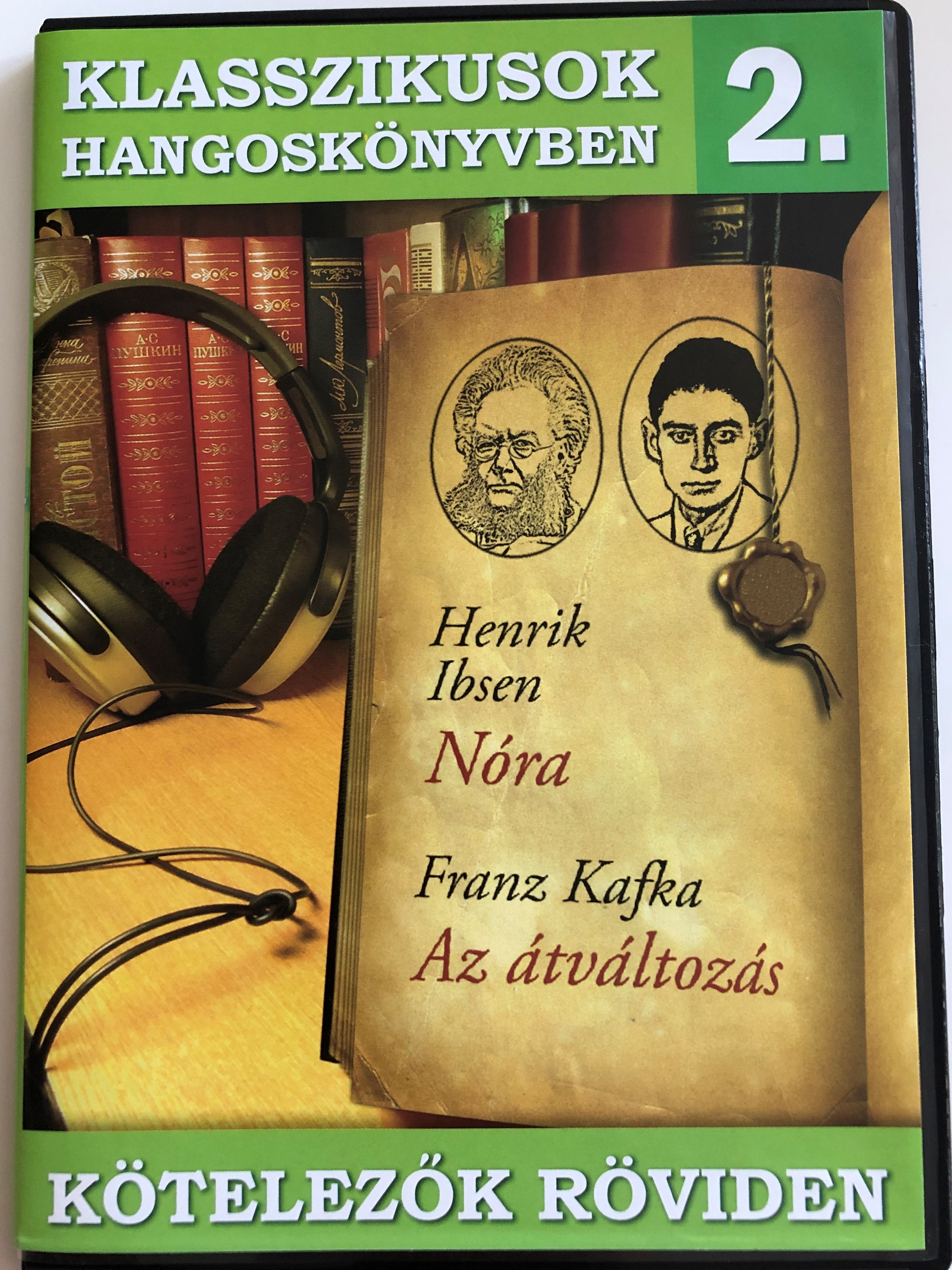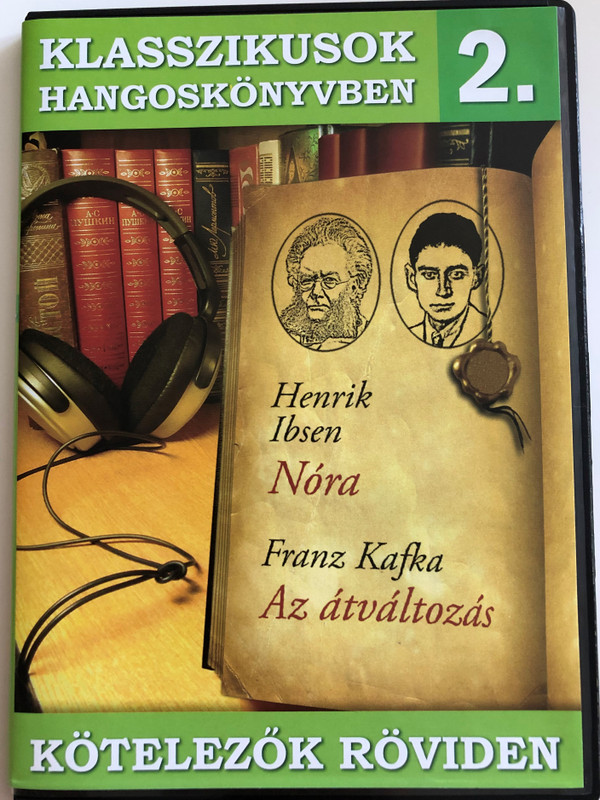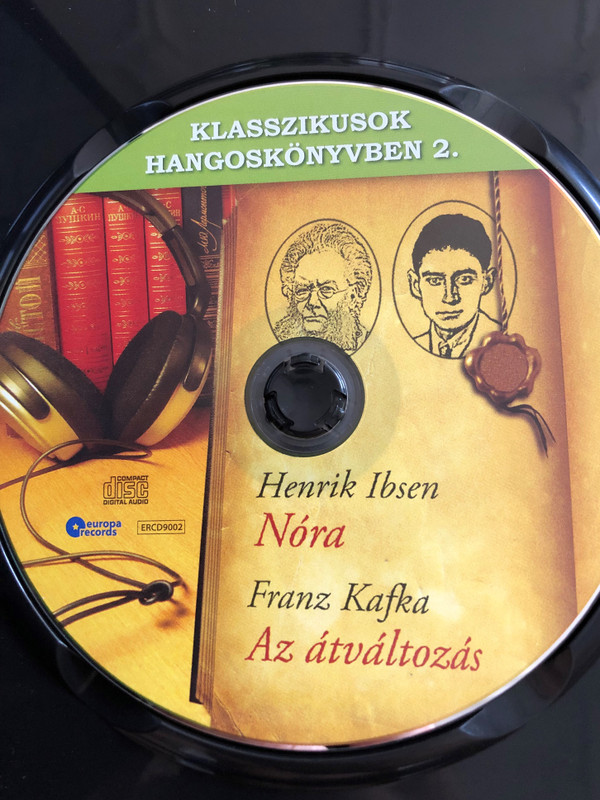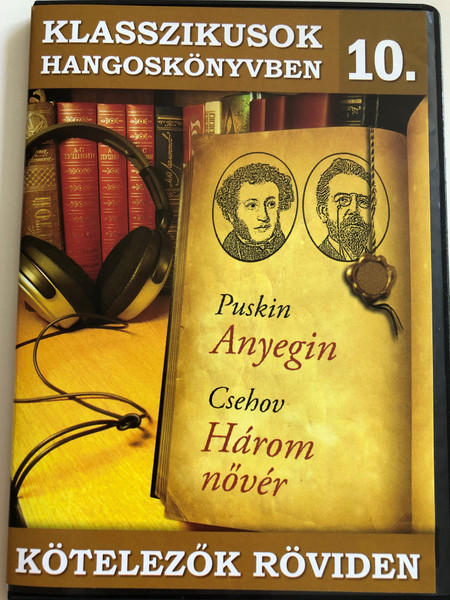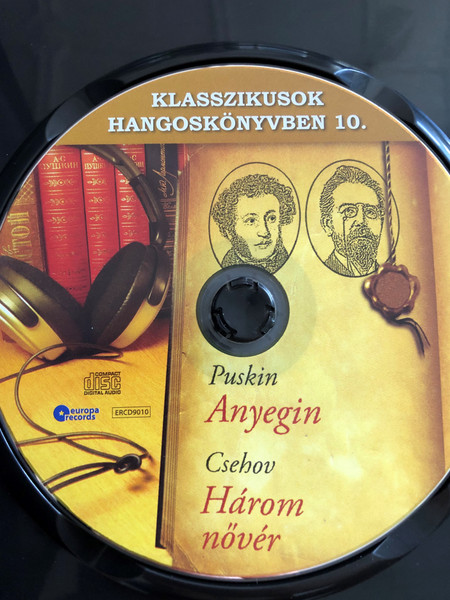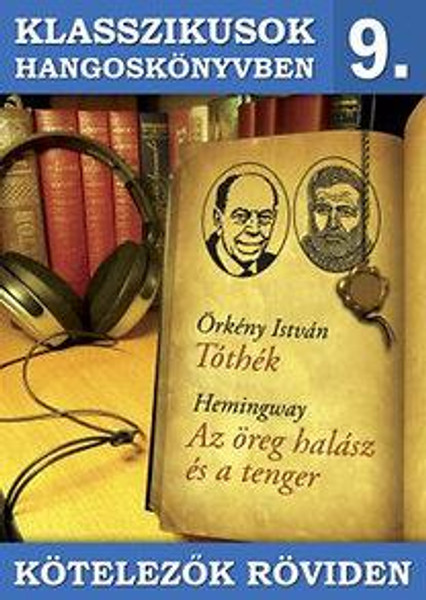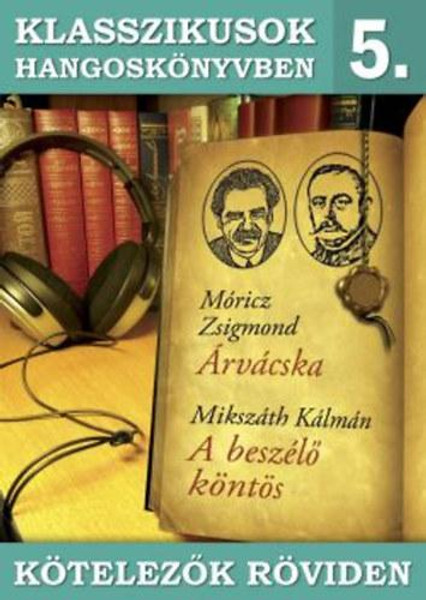Description
Klasszikusok Hangoskönyvben 2. / Henrik Ibsen: Nóra / Franz Kafka: Az átváltozás / Kötelezők röviden / Classic Writers in Audio 2. / Hungarian Audio Book / Audio CD 2009
ERCD 9002
UPC 5999557440214
MADE IN HUNGARY
Hungarian Suimmary:
Kötelezők röviden című sorozatunk célja a kedvcsinálás, az ismeretek gyors felfrissítése és a klasszikus irodalom bemutatása. A hangoskönyveken keresztül megelevenednek a novellák, színpadi művek és kisregények, a XIX-XX. századi irodalom nagy klasszikusai.
Sorozatunk második darabjában Henrik Ibsen leggyakrabban játszott darabját, a Nórá-t és Franz Kafka megdöbbentő és szürreális novelláját, Az átváltozás-t ajánljuk figyelmükbe.
Kiadványaink semmiféleképp nem helyettesítik a teljes művek ismeretét, mi több, az olvasást!
Franz Kafka (3 July 1883 – 3 June 1924) was a German-speaking Bohemian novelist and short-story writer, widely regarded as one of the major figures of 20th-century literature. His work, which fuses elements of realism and the fantastic, typically features isolated protagonists facing bizarre or surrealistic predicaments and incomprehensible socio-bureaucratic powers, and has been interpreted as exploring themes of alienation, existential anxiety, guilt, and absurdity. His best known works include "Die Verwandlung" ("The Metamorphosis"), Der Process (The Trial), and Das Schloss (The Castle). The term Kafkaesque has entered the English language to describe situations like those found in his writing.
Henrik Johan Ibsen (/ˈɪbsən/; Norwegian: [ˈhɛnrɪk ˈɪpsn̩]; 20 March 1828 – 23 May 1906) was a Norwegian playwright and theatre director. As one of the founders of modernism in theatre, Ibsen is often referred to as "the father of realism" and one of the most influential playwrights of his time. His major works include Brand, Peer Gynt, An Enemy of the People, Emperor and Galilean, A Doll's House, Hedda Gabler, Ghosts, The Wild Duck, When We Dead Awaken, and The Master Builder. He is the most frequently performed dramatist in the world after Shakespeare,[3][4] and by the early 20th century A Doll's House became the world's most performed play.
